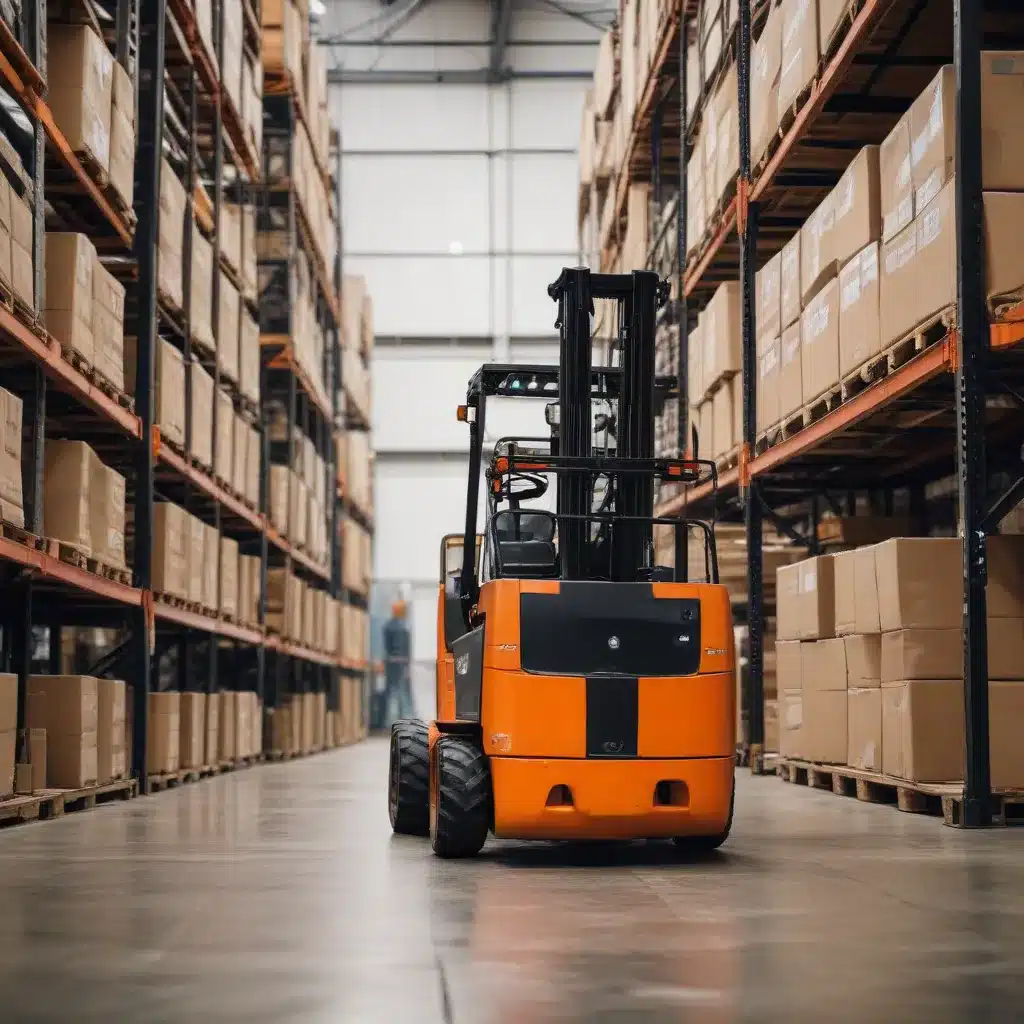
The Rise of Lithium-ion Forklifts
In the dynamic world of material handling, the spotlight has firmly shifted towards the transformative power of lithium-ion forklifts. This emerging technology is ushering in a new era of enhanced efficiency and sustainability, as industries worldwide embrace the electric forklift revolution.
As per the latest insights from Interact Analysis, the ascendancy of lithium-ion batteries in the forklift domain is set to outpace traditional lead-acid batteries by 2025. This shift is particularly evident in the Class 1-3 category of electric forklifts, where lithium-ion technology is projected to dominate the market landscape.
According to the analysis, the global market share of lithium-ion forklifts is poised to surpass the 50% milestone by 2030. Remarkably, Class 3.1 forklifts are forecasted to lead the charge, achieving the first-ever 50% lithium-ion adoption globally by 2025. Furthermore, this class is anticipated to achieve complete lithium-ion electrification by 2032.
Driving the Electric Revolution: China’s Forefront Position
At the forefront of this electrification revolution is China, where the rapid adoption of lithium-ion technology is evident in the swift electrification of Class 3.1 forklifts. In 2022 alone, global shipments of Class 3.1 forklifts reached 350,000 units, with China contributing over 60% of that figure, totaling 192,000 units and capturing 28.1% of the market share.
Europe’s Accelerated Transition
Key European countries, including France, Germany, Italy, Spain, the UK, and Sweden, are poised for a landmark year in 2025, as the lithium-ion adoption across all forklift categories is set to hit the 50% mark. This acceleration is attributed to the early embrace of electrification, with the European forklift market already boasting a 90% adoption rate in 2022.
Optimizing Your Online Presence
For businesses seeking to stay ahead in this evolving industry, optimizing their online presence is crucial. Keywords such as “lithium battery forklift,” “lithium-ion forklift,” and “electric forklift” are instrumental in reaching a broader audience actively searching for sustainable forklift solutions.
Embracing the Benefits of Lithium-ion Forklifts
The rise of lithium-ion forklifts presents a remarkable opportunity for businesses to enhance their material handling operations while reducing their environmental impact. These innovative solutions offer a host of benefits that are transforming the industry:
Enhanced Efficiency
Lithium-ion forklifts boast superior energy efficiency, delivering longer run times and faster charging capabilities compared to their lead-acid counterparts. This translates into increased productivity, reduced downtime, and lower operating costs.
Improved Sustainability
By embracing lithium-ion technology, businesses can significantly reduce their carbon footprint and contribute to a more sustainable future. These electric forklifts eliminate the need for emissions-producing internal combustion engines, aligning with the growing demand for eco-friendly material handling solutions.
Versatile and Adaptable
Lithium-ion forklifts are designed to be highly versatile, accommodating a wide range of pallet sizes and types with ease. Their multidirectional maneuverability enables seamless navigation through narrow aisles and tight spaces, optimizing warehouse layout and storage capacity.
Operator Comfort and Safety
The ergonomic design and precise controls of lithium-ion forklifts prioritize operator comfort and safety, enhancing the overall user experience. These features help reduce the risk of accidents and injuries, fostering a safer work environment.
Unlocking the Future of Material Handling
As lithium-ion forklifts emerge as the frontrunners in the electric forklift revolution, businesses worldwide are presented with an opportunity to enhance operational efficiency while reducing environmental impact. By staying connected with industry trends and embracing innovative solutions, organizations can elevate their material handling operations to new heights.
Hyder Forklift is at the forefront of this transformation, offering a range of cutting-edge lithium-ion forklifts that seamlessly integrate sustainability and performance. Explore their counter-balanced electric stacker and discover how your business can unlock a new era in material handling.
Embracing Sustainability: The Electric Forklift Revolution
The electric forklift revolution is not just a technological shift; it represents a comprehensive reevaluation of material handling practices, prioritizing environmental responsibility alongside operational efficiency. This paradigm shift is being championed by forward-thinking industry leaders, who recognize the urgent need to reduce carbon emissions and embrace sustainable practices.
Renewable Energy Integration
Zero-emission warehousing leverages the power of renewable energy sources, such as solar panels and wind turbines, to power their operations. By integrating these eco-friendly solutions, warehouses can reduce their reliance on non-renewable energy and even contribute surplus energy back to the grid, fostering a circular energy ecosystem.
Electric Vehicle Fleets
The logistics of the future are electric. Zero-emission warehouses are embracing electric vehicles for intra-warehouse transportation and last-mile deliveries. Electric forklifts, pallet jacks, and delivery vans not only minimize environmental impact but also contribute to cost savings and operational efficiency.
Green Packaging Initiatives
Sustainable warehousing extends beyond material handling equipment. Zero-emission warehouses prioritize eco-conscious packaging methods, from using biodegradable materials to implementing reusable packaging solutions. These initiatives align with the broader circular economy concept, reducing waste and promoting environmental stewardship.
Technological Innovations
Embracing technology is integral to achieving zero-emission goals. Advanced warehouse management systems (WMS) and Internet of Things (IoT) devices enable real-time monitoring, optimizing energy consumption, and identifying areas for further efficiency improvements.
Collaborative Sustainability
Zero-emission warehousing is not a solitary endeavor. It involves collaboration with suppliers, transporters, and stakeholders across the supply chain. By fostering a sustainability mindset throughout the network, these warehouses create a ripple effect, driving positive change industry-wide.
Conclusion: Powering the Future of Material Handling
The electric forklift revolution is not just a technological shift; it represents a comprehensive reevaluation of material handling practices, prioritizing environmental responsibility alongside operational efficiency. As industry leaders embrace this transformation, they are paving the way for a more sustainable and innovative future in logistics and warehousing.
By leveraging the power of lithium-ion forklifts, businesses can enhance their material handling operations, reduce their carbon footprint, and contribute to a greener tomorrow. As the industry continues to evolve, the adoption of these sustainable technologies and practices sets a new standard, exemplifying the sector’s resilience and willingness to innovate for a better future.
Join the Forklift Reviews community in embracing the electric forklift revolution and unlock the potential for sustainable material handling in your organization.

